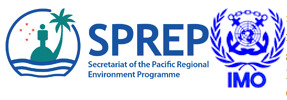Representatives from 13 Pacific island countries and territories reviewed and updated the Pacific Ocean Pollution Prevention Programme (PACPOL) strategy, which is implemented in partnership with the Secretariat of the Pacific Regional Environment Programme (SPREP) and the International Maritime Organization (IMO).
The strategy aims to address transboundary marine pollution in the Pacific islands through both control and prevention measures.
 22 October 2014: Representatives from 13 Pacific island countries and territories reviewed and updated the Pacific Ocean Pollution Prevention Programme (PACPOL) strategy, which is implemented in partnership with the Secretariat of the Pacific Regional Environment Programme (SPREP) and the International Maritime Organization (IMO). The strategy aims to address transboundary marine pollution in the Pacific islands through both control and prevention measures.
22 October 2014: Representatives from 13 Pacific island countries and territories reviewed and updated the Pacific Ocean Pollution Prevention Programme (PACPOL) strategy, which is implemented in partnership with the Secretariat of the Pacific Regional Environment Programme (SPREP) and the International Maritime Organization (IMO). The strategy aims to address transboundary marine pollution in the Pacific islands through both control and prevention measures.
The “huge volume” of ship traffic passing through the Pacific Ocean poses a threat to the Pacific people and their environment, said Kosi Latu, SPREP. He explained that ship-sourced marine pollution includes ballast water management, dumping and oil spills. PACPOL defines activities to protect the Pacific islands’ environment and natural resources, public health and safety from marine pollution, through awareness, prevention, preparedness and response.
Participants underscored their willingness to protect the islands’ marine and coastal environment through regional collaboration at the workshop, which convened from 20-24 October 2014, in Brisbane, Australia.
The region has also addressed marine pollution issues through the revision of the Pacific Islands Regional Marine Spill Contingency Plan (PACPLAN) and the Regional Reception Facilities Plan, which aims to reduce waste materials dumped from ships. [SPREP Press Release] [PACPOL Strategy 2010-2014]